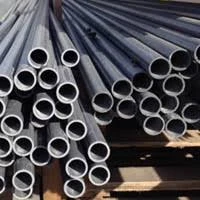
-
 Afrikaans
Afrikaans -
 Albanian
Albanian -
 Amharic
Amharic -
 Arabic
Arabic -
 Armenian
Armenian -
 Azerbaijani
Azerbaijani -
 Basque
Basque -
 Belarusian
Belarusian -
 Bengali
Bengali -
 Bosnian
Bosnian -
 Bulgarian
Bulgarian -
 Catalan
Catalan -
 Cebuano
Cebuano -
 China
China -
 China (Taiwan)
China (Taiwan) -
 Corsican
Corsican -
 Croatian
Croatian -
 Czech
Czech -
 Danish
Danish -
 Dutch
Dutch -
 English
English -
 Esperanto
Esperanto -
 Estonian
Estonian -
 Finnish
Finnish -
 French
French -
 Frisian
Frisian -
 Galician
Galician -
 Georgian
Georgian -
 German
German -
 Greek
Greek -
 Gujarati
Gujarati -
 Haitian Creole
Haitian Creole -
 hausa
hausa -
 hawaiian
hawaiian -
 Hebrew
Hebrew -
 Hindi
Hindi -
 Miao
Miao -
 Hungarian
Hungarian -
 Icelandic
Icelandic -
 igbo
igbo -
 Indonesian
Indonesian -
 irish
irish -
 Italian
Italian -
 Japanese
Japanese -
 Javanese
Javanese -
 Kannada
Kannada -
 kazakh
kazakh -
 Khmer
Khmer -
 Rwandese
Rwandese -
 Korean
Korean -
 Kurdish
Kurdish -
 Kyrgyz
Kyrgyz -
 Lao
Lao -
 Latin
Latin -
 Latvian
Latvian -
 Lithuanian
Lithuanian -
 Luxembourgish
Luxembourgish -
 Macedonian
Macedonian -
 Malgashi
Malgashi -
 Malay
Malay -
 Malayalam
Malayalam -
 Maltese
Maltese -
 Maori
Maori -
 Marathi
Marathi -
 Mongolian
Mongolian -
 Myanmar
Myanmar -
 Nepali
Nepali -
 Norwegian
Norwegian -
 Norwegian
Norwegian -
 Occitan
Occitan -
 Pashto
Pashto -
 Persian
Persian -
 Polish
Polish -
 Portuguese
Portuguese -
 Punjabi
Punjabi -
 Romanian
Romanian -
 Russian
Russian -
 Samoan
Samoan -
 Scottish Gaelic
Scottish Gaelic -
 Serbian
Serbian -
 Sesotho
Sesotho -
 Shona
Shona -
 Sindhi
Sindhi -
 Sinhala
Sinhala -
 Slovak
Slovak -
 Slovenian
Slovenian -
 Somali
Somali -
 Spanish
Spanish -
 Sundanese
Sundanese -
 Swahili
Swahili -
 Swedish
Swedish -
 Tagalog
Tagalog -
 Tajik
Tajik -
 Tamil
Tamil -
 Tatar
Tatar -
 Telugu
Telugu -
 Thai
Thai -
 Turkish
Turkish -
 Turkmen
Turkmen -
 Ukrainian
Ukrainian -
 Urdu
Urdu -
 Uighur
Uighur -
 Uzbek
Uzbek -
 Vietnamese
Vietnamese -
 Welsh
Welsh -
 Bantu
Bantu -
 Yiddish
Yiddish -
 Yoruba
Yoruba -
 Zulu
Zulu
Exploring the Benefits of FRP Laundering for Enhanced Performance and Sustainability
The Importance of FRP Launders in Modern Industry
In today's increasingly industrialized world, the need for efficient and effective solutions to manage wastewater and ensure the safety of surrounding environments has never been more critical. One such solution that has garnered considerable attention is the use of Fiber Reinforced Polymer (FRP) launders. These innovative structures play a vital role in various industries, particularly in water treatment and wastewater management.
FRP is a composite material made from a polymer matrix reinforced with fibers, typically glass, carbon, or aramid. This unique composition endows FRP with several advantageous properties, including high strength-to-weight ratio, corrosion resistance, and durability. These features make FRP ideal for applications in environments where traditional materials, such as steel or concrete, may falter due to exposure to harsh chemicals or extreme conditions.
The Importance of FRP Launders in Modern Industry
One of the primary benefits of FRP launders is their corrosion resistance. Traditional material launders, particularly those made of metal, can corrode over time, leading to costly maintenance and replacement. In contrast, FRP launders stand resilient against the adverse effects of chemicals found in wastewater, such as sulfides, chlorides, and various acids. This extends their service life and reduces the overall operational costs for facilities.
frp launder

In addition to corrosion resistance, FRP launders are lightweight and easy to install. The reduced weight facilitates simpler transportation and quicker installation times, allowing facilities to minimize downtime during upgrades or maintenance. Furthermore, their flexibility in design means that these launders can be custom-engineered to fit specific layouts and requirements, ensuring optimal flow management.
Another significant advantage is the lower thermal conductivity of FRP. Unlike metal, which can conduct heat and potentially lead to temperature-related issues in wastewater, FRP maintains more stable thermal characteristics. This property is essential in preventing thermal stress, which can affect both the launder and the wastewater within it.
Moreover, the surface finish of FRP launders can be optimized to prevent the accumulation of sludge and debris. This reduces the need for frequent cleaning and maintenance, further enhancing the efficiency of wastewater treatment processes. By minimizing manual intervention, facilities can allocate resources to other critical operational areas, ultimately improving productivity.
Finally, the use of FRP launders aligns with sustainable practices in industry. As organizations strive to reduce their environmental impact, the longevity and efficiency of FRP solutions contribute to more sustainable wastewater management. Utilizing materials that require less frequent replacement and maintenance minimizes waste and promotes a more eco-friendly approach.
In conclusion, FRP launders present a compelling solution for modern industries grappling with wastewater management challenges. Their notable resistance to corrosion, versatility in design, light weight, and sustainability make them an invaluable asset in ensuring effective wastewater treatment processes. As industries continue to evolve and prioritize environmental safety, FRP launders will undoubtedly play a pivotal role in shaping the future of water treatment technologies.









